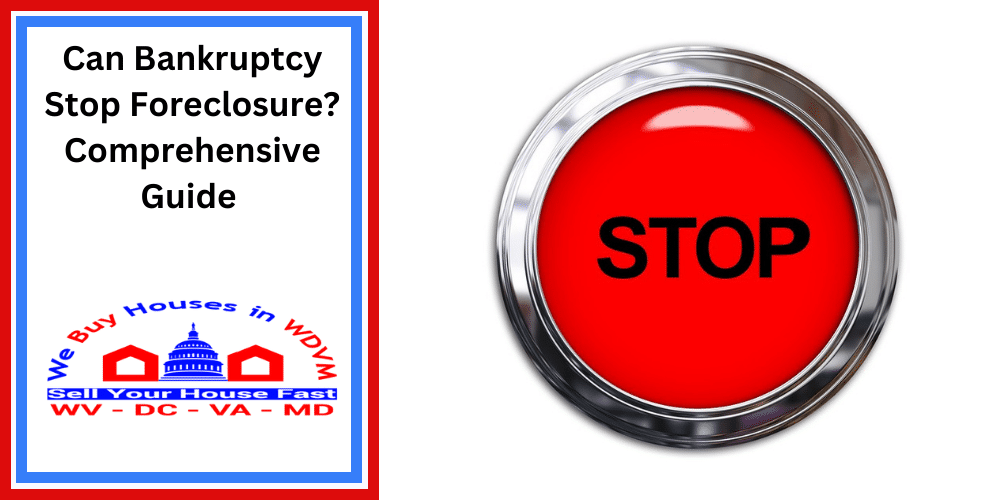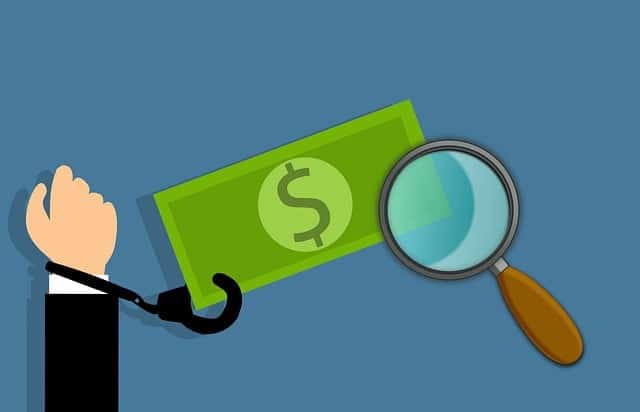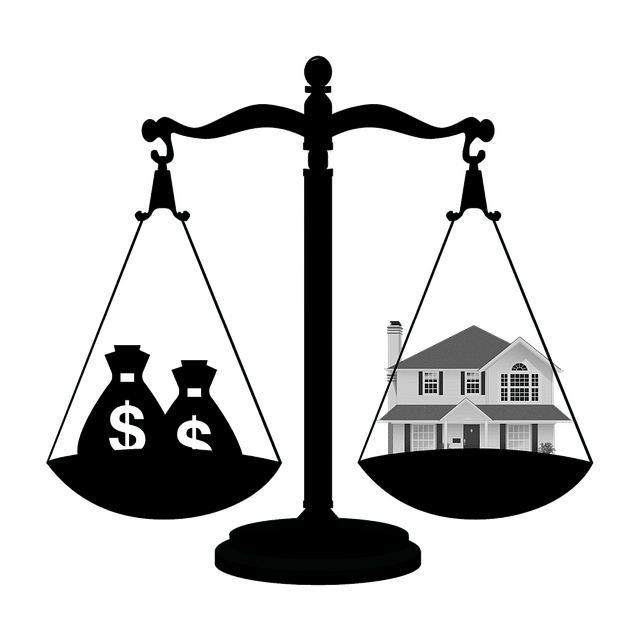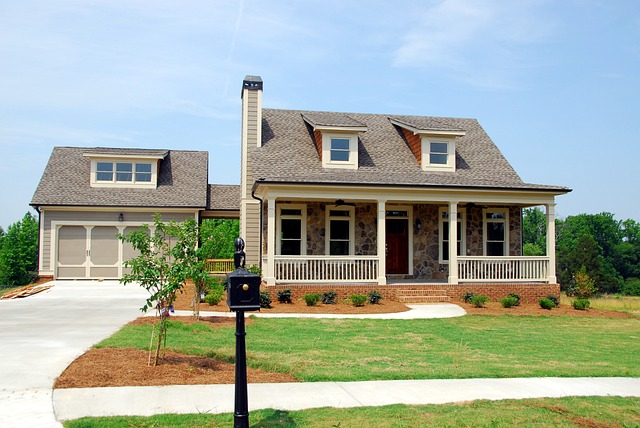Can Bankruptcy Stop Foreclosure: Exploring Your Options

Can bankruptcy stop foreclosure? This question is on the minds of many homeowners facing the threat of losing their homes. The prospect of foreclosure can be overwhelming and devastating, but it’s important to know that there are potential solutions available. In this introduction, we will delve into the topic of bankruptcy and its potential to halt the foreclosure process.
Foreclosure can occur when a homeowner falls behind on mortgage payments, and the lender takes legal action to repossess the property. This can be a distressing situation, leaving homeowners feeling helpless and uncertain about their future. However, bankruptcy can offer a glimmer of hope in these challenging times.
Bankruptcy is a legal process that provides individuals with a fresh start by eliminating or reorganizing their debts. It can be a powerful tool to stop foreclosure and give homeowners the opportunity to save their homes. By filing for bankruptcy, homeowners can trigger an automatic stay, which temporarily halts all collection efforts, including foreclosure proceedings.
Chapter 13 bankruptcy, in particular, can be a viable option for homeowners facing foreclosure. This type of bankruptcy allows individuals to create a repayment plan to catch up on their mortgage arrears over a period of three to five years. It provides an opportunity to restructure debt and regain control of their financial situation.
However, it’s important to note that bankruptcy is not a one-size-fits-all solution. Each individual’s circumstances are unique, and it’s crucial to consult with a bankruptcy attorney to determine the best course of action. Additionally, bankruptcy should not be seen as a quick fix, but rather as a long-term solution that requires commitment and financial discipline.
In conclusion, the question “can bankruptcy stop foreclosure?” is a complex one. While bankruptcy can offer a lifeline to homeowners facing foreclosure, it’s essential to understand the intricacies of the process and seek professional guidance. In the following sections, we will explore the different types of bankruptcy, eligibility requirements, and the potential impact on credit scores. So, let’s dive deeper into the world of bankruptcy and its potential to stop foreclosure.
Can Bankruptcy Stop Foreclosure?
Facing foreclosure can be an overwhelming and distressing experience for any homeowner. The fear of losing one’s home can create a sense of panic and uncertainty. However, for those struggling with overwhelming debt and the imminent threat of foreclosure, bankruptcy may provide a glimmer of hope.

What is Bankruptcy?
Bankruptcy is a legal process that offers individuals and businesses the opportunity to eliminate or restructure their debts. It is a complex and multifaceted process that can have significant implications on various aspects of a person’s financial life. One of the potential benefits of filing for bankruptcy is the ability to halt foreclosure proceedings.
What is Automatic Stay?
When an individual files for bankruptcy, an automatic stay is initiated. This stay is a court order that prohibits creditors, including mortgage lenders, from pursuing collection actions, including foreclosure. The automatic stay provides immediate relief and can buy the homeowner some time to explore their options and potentially save their home.
Two Main Types of Bankruptcy
There are two main types of bankruptcy that can potentially stop foreclosure: Chapter 7 and Chapter 13. Chapter 7 bankruptcy involves the liquidation of assets to repay creditors, while Chapter 13 bankruptcy involves creating a repayment plan to pay off debts over a period of three to five years.
How They Work
In Chapter 7 bankruptcy, the automatic stay may temporarily delay foreclosure proceedings, but it does not provide a long-term solution to save the home. On the other hand, Chapter 13 bankruptcy can be a powerful tool to stop foreclosure and allow homeowners to catch up on missed mortgage payments over time.
It is important to note that bankruptcy is not a one-size-fits-all solution. Each individual’s financial situation is unique, and the outcome of bankruptcy proceedings can vary. Consulting with a bankruptcy attorney who specializes in foreclosure cases is crucial to understanding the options available and making informed decisions.
In conclusion, bankruptcy can potentially stop foreclosure and provide individuals with a chance to regain control of their financial situation. However, it is a complex process that requires careful consideration and expert guidance. If you are facing foreclosure, it is essential to seek professional advice to explore all available options and determine the best course of action for your specific circumstances.
How Does Bankruptcy Affect Foreclosure?
Bankruptcy is a legal process that provides individuals or businesses with financial relief when they are unable to repay their debts. For homeowners facing foreclosure, filing for bankruptcy can potentially provide a way to stop the foreclosure process and give them a chance to keep their homes.

How Does Automatic Stay Work?
One way that bankruptcy can affect foreclosure is through an automatic stay. When a person files for bankruptcy, an automatic stay is immediately put into place. This stay prevents creditors, including mortgage lenders, from taking any further action to collect debts, including foreclosure proceedings. This means that if a homeowner files for bankruptcy before their home is sold in foreclosure, the sale will be temporarily halted.
However, it is important to note that the automatic stay is not a permanent solution. While it can provide temporary relief, it does not eliminate the underlying debt or prevent foreclosure indefinitely. In most cases, the lender can request the court to lift the automatic stay, allowing them to proceed with the foreclosure process. This usually happens if the homeowner is unable to make the mortgage payments or if they fail to propose a feasible plan to repay the debt.
Can Chapter 13 Stop Foreclosure?
Another way that bankruptcy can affect foreclosure is through Chapter 13 bankruptcy. This type of bankruptcy allows individuals to reorganize their debts and create a repayment plan. If a homeowner files for Chapter 13 bankruptcy, they can include their mortgage arrears in the repayment plan, giving them an opportunity to catch up on missed payments over a period of three to five years. As long as the homeowner makes the required payments under the plan, they can prevent foreclosure and keep their home.
In conclusion, while bankruptcy can provide temporary relief and potentially stop the foreclosure process, it is not a guaranteed solution. It is important for homeowners to consult with a bankruptcy attorney to understand their options and determine the best course of action to protect their homes.
What Are the Different Types of Bankruptcy?
When facing financial difficulties, individuals and businesses may consider filing for bankruptcy as a way to alleviate their debts and potentially stop foreclosure. Bankruptcy is a legal process that allows debtors to reorganize or eliminate their debts under the supervision of a bankruptcy court. There are several different types of bankruptcy, each with its own set of rules and requirements.

Chapter 7 Stop Foreclosure
One common type of bankruptcy is Chapter 7, also known as liquidation bankruptcy. In Chapter 7 bankruptcy, a trustee is appointed to sell the debtor’s non-exempt assets in order to repay creditors. This type of bankruptcy is typically available to individuals and businesses with little or no income or assets.
Chapter 13 Stop Foreclosure
Another type of bankruptcy is Chapter 13, which is also known as reorganization bankruptcy. In Chapter 13 bankruptcy, individuals with a regular income can create a repayment plan to pay off their debts over a period of three to five years. This type of bankruptcy allows individuals to keep their assets while repaying their creditors.
Bankruptcy for Businesses
For businesses, there is Chapter 11 bankruptcy, which is a form of reorganization bankruptcy. Chapter 11 bankruptcy allows businesses to continue operating while they develop a plan to repay their debts. This type of bankruptcy is often used by large corporations but can also be utilized by small businesses.
It’s important to note that while bankruptcy can provide relief from debts, it may not always stop foreclosure. In some cases, filing for bankruptcy can temporarily halt foreclosure proceedings, giving the debtor time to catch up on missed mortgage payments. However, if the debtor is unable to bring their mortgage payments current, foreclosure may still proceed.
In conclusion, understanding the different types of bankruptcy is crucial for individuals and businesses considering this option to address their financial difficulties. Each type of bankruptcy offers different benefits and requirements, and it’s important to consult with a qualified bankruptcy attorney to determine the best course of action in each specific situation.
Can Chapter 7 Bankruptcy Stop Foreclosure?
If you’re facing foreclosure on your home, you may be wondering if filing for Chapter 7 bankruptcy can help you stop the process. The answer is, it depends.

How Does Chapter 7 Work?
Chapter 7 bankruptcy is a type of bankruptcy that allows individuals to eliminate their debts and start fresh. However, it does not automatically stop foreclosure proceedings. Instead, it puts an automatic stay in place, which temporarily halts any collection actions, including foreclosure.
How Does Automatic Stay Work?
The automatic stay gives you some breathing room to figure out your next steps. During this time, you can work with your mortgage lender to try and negotiate a loan modification or repayment plan. This can potentially allow you to keep your home and avoid foreclosure.
However, it’s important to note that the automatic stay is not a permanent solution. If you are unable to come to an agreement with your lender or if you do not make the required payments, the foreclosure process can resume.
Considering Chapter 7 & 13 Bankruptcy
Additionally, Chapter 7 bankruptcy does not eliminate your mortgage debt. If you want to keep your home, you will still need to continue making your mortgage payments. If you are unable to do so, the lender can still foreclose on your property.
In some cases, individuals may choose to file for Chapter 13 bankruptcy instead. This type of bankruptcy allows you to create a repayment plan to catch up on missed mortgage payments over a period of three to five years. This can help you avoid foreclosure and keep your home.
In conclusion, while Chapter 7 bankruptcy can temporarily stop foreclosure proceedings, it does not guarantee that you will be able to keep your home. It’s important to consult with a bankruptcy attorney to determine the best course of action for your specific situation.
Can Chapter 13 Bankruptcy Stop Foreclosure?
If you’re facing foreclosure, you may be wondering if filing for Chapter 13 bankruptcy can help you save your home. The answer is yes, Chapter 13 bankruptcy can indeed stop foreclosure proceedings and provide you with an opportunity to catch up on missed mortgage payments.

Chapter 13 Automatic Stay
When you file for Chapter 13 bankruptcy, an automatic stay is put into place. This means that all collection activities, including foreclosure, must immediately halt. The automatic stay gives you temporary relief from your creditors and allows you to reorganize your debts.
Chapter 13 Repayment Plan
Under Chapter 13 bankruptcy, you’ll propose a repayment plan to the court. This plan typically spans three to five years and allows you to catch up on missed mortgage payments over time. As long as you make your regular mortgage payments and adhere to the terms of the repayment plan, you can keep your home.
Chapter 13 Benefits & Advantages
One of the key advantages of Chapter 13 bankruptcy is that it allows you to address other debts as well. This can be particularly helpful if you’re struggling with credit card debt, medical bills, or other financial obligations. By consolidating your debts and making affordable monthly payments, you can regain control of your finances and keep your home.
Chapter 13 Considerations
It’s important to note that Chapter 13 bankruptcy is not a permanent solution. If you fail to make your mortgage payments or adhere to the terms of the repayment plan, the lender can request the court to lift the automatic stay and proceed with foreclosure. Therefore, it’s crucial to create a realistic repayment plan that you can comfortably afford.
In conclusion, if you’re facing foreclosure, filing for Chapter 13 bankruptcy can provide you with a lifeline to save your home. By taking advantage of the automatic stay and proposing a repayment plan, you can stop foreclosure proceedings and regain control of your financial situation. However, it’s essential to consult with a bankruptcy attorney to ensure that Chapter 13 bankruptcy is the right option for you.
What Are the Requirements for Filing Bankruptcy?
Bankruptcy can be a daunting process, but for those facing foreclosure, it may offer a glimmer of hope. By filing for bankruptcy, individuals can potentially halt the foreclosure process and gain some breathing room to get their finances back on track. However, before considering bankruptcy as an option, it is important to understand the requirements involved.

Bankruptcy Eligibility Criteria
First and foremost, individuals must meet the eligibility criteria to file for bankruptcy. There are two common types of bankruptcy for individuals: Chapter 7 and Chapter 13. To qualify for Chapter 7 bankruptcy, individuals must pass the means test, which compares their income to the median income in their state. If their income is below the median, they may be eligible for Chapter 7. If their income is above the median, they may need to consider Chapter 13 bankruptcy instead.
Credit Counseling Mandatory Before Filing Bankruptcy
In addition to income requirements, individuals must also complete credit counseling within 180 days before filing for bankruptcy. This counseling is designed to provide individuals with a better understanding of their financial situation and explore alternatives to bankruptcy. It is an important step in the process and must be completed through an approved credit counseling agency.
Gather and Submit Financial Documents
Once these requirements are met, individuals can proceed with filing for bankruptcy. This involves gathering and submitting various financial documents, such as income statements, tax returns, and a list of assets and liabilities. It is crucial to provide accurate and complete information to ensure a smooth bankruptcy process.
Consult an Attorney
While bankruptcy can potentially stop foreclosure, it is important to consult with an experienced bankruptcy attorney to navigate the complex legal requirements. They can guide individuals through the process, help them understand their options, and ensure their rights are protected.
In conclusion, filing for bankruptcy can be a viable option for those facing foreclosure. By meeting the eligibility requirements and seeking professional guidance, individuals can potentially halt the foreclosure process and gain some relief from their financial burdens. However, it is crucial to approach bankruptcy with careful consideration and to fully understand the requirements involved.
What Happens to My Mortgage in Bankruptcy?
Bankruptcy can be a daunting and overwhelming process, especially when it comes to the potential loss of your home. If you’re facing foreclosure, you may be wondering if bankruptcy can stop it and what happens to your mortgage in the process. In this section, we will explore the relationship between bankruptcy and foreclosure, providing you with the information you need to navigate this challenging situation.

Automatic Stay is Applied
When you file for bankruptcy, an automatic stay is put into place. This stay halts all collection efforts, including foreclosure proceedings. It provides you with immediate relief and a temporary pause in the foreclosure process. However, it’s important to note that the automatic stay is not a permanent solution. It only provides temporary relief while your bankruptcy case is being resolved.
Considering What Type of Bankruptcy is Best for You
There are two main types of bankruptcy that individuals typically file – Chapter 7 and Chapter 13. In Chapter 7 bankruptcy, your non-exempt assets are liquidated to pay off your debts. While this can eliminate your personal liability for the mortgage, it does not prevent the foreclosure of your home. On the other hand, Chapter 13 bankruptcy allows you to create a repayment plan to catch up on your missed mortgage payments over a period of three to five years. This can help you avoid foreclosure and keep your home.
Consulting With an Attorney
It’s important to consult with a bankruptcy attorney to determine the best course of action for your specific situation. They can guide you through the bankruptcy process, help you understand the implications for your mortgage, and provide you with the best possible outcome.
In conclusion, bankruptcy can provide temporary relief from foreclosure through the automatic stay. However, it’s essential to explore the different types of bankruptcy and consult with a professional to find the best solution for your mortgage. Remember, each case is unique, and it’s crucial to seek personalized advice to protect your home and financial future.
Can I Keep My Home if I File Bankruptcy?
If you’re facing foreclosure, you may be wondering if filing for bankruptcy can help you keep your home. The answer is, it depends. Bankruptcy can potentially stop foreclosure proceedings and give you a chance to save your home, but it’s not a guaranteed solution.

What Happens After I File Bankruptcy
When you file for bankruptcy, an automatic stay is put in place, which halts all collection activities, including foreclosure. This means that the foreclosure process is temporarily paused, giving you time to explore your options. However, it’s important to note that the automatic stay is not permanent, and the lender can still proceed with foreclosure if certain conditions are met.
Considering Chapter 7
To fully understand how bankruptcy can affect your ability to keep your home, it’s crucial to consider the type of bankruptcy you file. Chapter 7 bankruptcy, also known as liquidation bankruptcy, may not provide long-term protection for your home. While it can temporarily stop foreclosure, the lender can eventually proceed with the process unless you can catch up on missed payments or negotiate a loan modification.
Considering Chapter 13
On the other hand, Chapter 13 bankruptcy, also known as reorganization bankruptcy, can offer more substantial protection. With Chapter 13, you can create a repayment plan that allows you to catch up on missed mortgage payments over a period of three to five years. As long as you make your plan payments and stay current on your mortgage going forward, you can keep your home.
In conclusion, filing for bankruptcy can potentially stop foreclosure and give you the opportunity to keep your home. However, the outcome depends on various factors, including the type of bankruptcy filed and your ability to meet the requirements set forth by the court. It’s important to consult with a bankruptcy attorney to understand your options and make an informed decision.
Summary
In conclusion, the topic of “can bankruptcy stop foreclosure?” is a complex issue that requires a thorough understanding of bankruptcy laws and their impact on foreclosure proceedings. Throughout this post, we have explored various aspects related to this topic, including the different types of bankruptcy, the requirements for filing bankruptcy, and the effects of bankruptcy on mortgages.
One of the key points we discussed is the fact that bankruptcy can indeed stop foreclosure, depending on the type of bankruptcy filed. Chapter 7 bankruptcy, for example, can temporarily halt foreclosure proceedings, giving homeowners a chance to catch up on missed mortgage payments. On the other hand, Chapter 13 bankruptcy offers a more long-term solution by allowing homeowners to restructure their debts and create a repayment plan.
We also highlighted the importance of understanding the requirements for filing bankruptcy, such as completing credit counseling and meeting income eligibility criteria. By fulfilling these requirements, homeowners can take advantage of the protections and benefits offered by bankruptcy.
Furthermore, we addressed the common concern of whether filing bankruptcy means losing one’s home. While bankruptcy does not guarantee the ability to keep a home, it can provide opportunities for homeowners to negotiate with lenders and potentially retain ownership.
Looking ahead, it is important to stay informed about any future developments or trends that may impact bankruptcy and foreclosure. Changes in legislation or economic conditions can have a significant impact on the options available to homeowners facing foreclosure.
In closing, we would like to thank you for taking the time to read this post. We hope that the information provided has been helpful in understanding the topic of “”can bankruptcy stop foreclosure””. If you have any further questions or would like to share your own experiences, we encourage you to leave a comment or provide feedback. Remember, seeking professional advice from a bankruptcy attorney is always recommended when considering bankruptcy as an option to stop foreclosure.

About Justin Mitchell
Justin, the owner and operator of “We Buy Houses In WDVM,” is a seasoned professional with a knack for providing solutions to individuals looking to sell their homes or investment properties quickly, regardless of the circumstances.
With a wealth of experience in various buying and selling scenarios, Justin excels at simplifying transactions and ensuring a stress-free process for all parties involved.
Whether you’re seeking a swift cash purchase or exploring alternative selling solutions, Justin is dedicated to finding a win-win outcome for you. As a legitimate house buyer,
Justin boasts a stellar rating on Google Reviews, a testament to his commitment to customer satisfaction.
Visit his “Beat Any Offer” page to understand why he values presenting sellers with concrete facts over mere opinions. Discover why he believes that facts matter most when it comes to creatively selling a house fast.
Table of Contents

